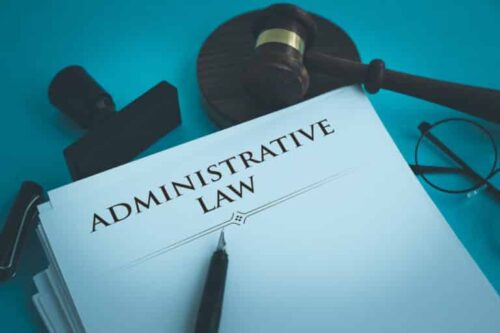THE ROLE OF ADMINISTRATIVE AGENCIES IN THE LEGAL SYSTEM: POWERS, FUNCTIONS, AND LIMITATIONS.
Introduction: In modern legal systems, administrative agencies play a vital role in implementing and enforcing laws and regulations. These agencies are specialized governmental bodies that possess the authority to carry out specific functions delegated to them by the legislative branch. Their powers, functions, and limitations are carefully designed to strike a balance between effective governance and safeguarding individual rights and due process. This article explores the role of administrative agencies in the legal system, delving into their powers, functions, and the limitations imposed upon them.
- Definition and Purpose of Administrative Agencies: Administrative agencies are governmental bodies established to administer specific laws and regulations within their designated areas of jurisdiction. They are typically created by legislation and are granted powers and authorities to fulfill their designated purposes. The overarching goal of administrative agencies is to bridge the gap between the legislative branch, which creates laws, and the executive branch, which enforces them.

- Powers and Functions of Administrative Agencies:
- Rulemaking: One of the primary functions of administrative agencies is rulemaking. They have the authority to promulgate regulations and standards to provide specific guidelines and frameworks for implementing laws. These regulations often fill in gaps left by broadly worded statutes, allowing agencies to address technical and practical aspects of the law.
- Enforcement: Administrative agencies have the power to enforce the regulations and laws within their purview. This includes conducting investigations, gathering evidence, and taking enforcement actions against individuals or entities found in violation of the rules. Agencies may have the ability to impose fines, sanctions, or other penalties to ensure compliance.
- Licensing and Permits: Many administrative agencies are responsible for issuing licenses, permits, and certifications. They establish requirements and standards for granting these authorizations, ensuring that individuals and entities meet specific qualifications or criteria to engage in certain activities or professions. Examples include professional licensing boards or agencies responsible for environmental permits.
- Adjudication: Administrative agencies often possess quasi-judicial powers, enabling them to resolve disputes and controversies within their areas of expertise. They conduct administrative hearings, receive evidence, and render decisions that are binding on the parties involved. These decisions are subject to review by the courts in accordance with established legal procedures.
III. Limitations on Administrative Agencies:
- Statutory and Constitutional Constraints: Administrative agencies must operate within the boundaries set by the enabling legislation that establishes their authority. They cannot exceed their statutory powers or violate constitutional principles, such as due process, equal protection, or separation of powers. Courts play a crucial role in reviewing agency actions and ensuring compliance with legal requirements.
- Procedural Safeguards: To protect the rights of individuals and entities subject to agency actions, administrative procedures often include specific safeguards. These may include notice requirements, the right to a hearing, the opportunity to present evidence, and the right to appeal agency decisions to the courts. Procedural fairness is essential to prevent arbitrary or capricious agency actions.
- Judicial Review: Administrative agency actions are subject to judicial review to determine their legality and conformity with the law. Courts examine the decision-making process, the evidence considered, and the reasoning behind the agency’s actions. They may overturn agency decisions if they find them to be unsupported by the evidence or contrary to the law.
- Political Accountability: While administrative agencies operate independently from the legislative and executive branches, they remain accountable to them and to the public. The political process provides a mechanism for overseeing and influencing agency actions. Legislators can pass new laws or amend existing ones to modify agency powers, and executive officials may exercise oversight and appoint agency heads.

Conclusion: Administrative agencies play a vital role in the legal system, carrying out important functions such as rulemaking, enforcement, licensing, and adjudication. Their powers and functions are carefully delineated within the framework of enabling legislation, and they are subject to limitations to ensure compliance with the law and protection of individual rights. The relationship between administrative agencies and the legal system is a complex one, balancing the need for effective governance with the imperative of maintaining accountability and due process.


